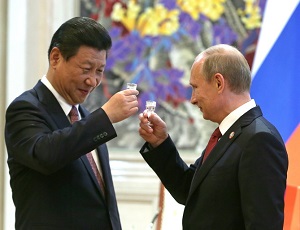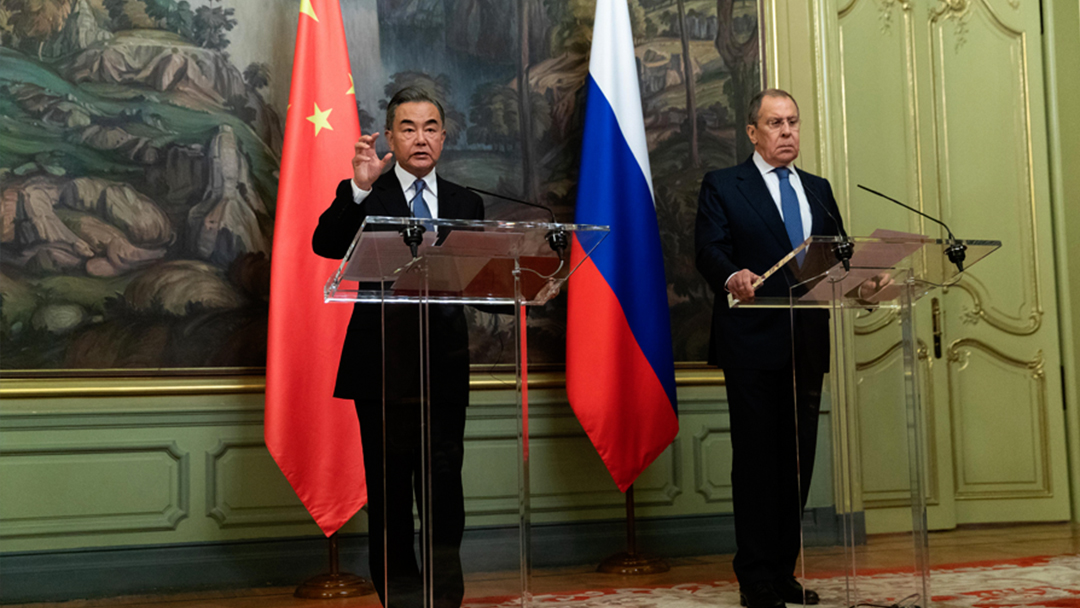by Glauco D’Agostino
 It is Foreign Policy, the US magazine owned by The Washington Post, that last Monday has reminded us India is the largest democracy in the world. And that another great democracy, Brazil, like India, did not condemn Russia at the UN General Assembly and did not impose sanctions as the West did. The same is true of Russia’s suspension from the UN Human Rights Council, as other major democracies, including South Africa, Nigeria, Mexico, Pakistan and Indonesia, have refused to vote for it.
It is Foreign Policy, the US magazine owned by The Washington Post, that last Monday has reminded us India is the largest democracy in the world. And that another great democracy, Brazil, like India, did not condemn Russia at the UN General Assembly and did not impose sanctions as the West did. The same is true of Russia’s suspension from the UN Human Rights Council, as other major democracies, including South Africa, Nigeria, Mexico, Pakistan and Indonesia, have refused to vote for it.
In that article, Ambassador Shivshankar Menon, former National Security Advisor and former Indian Foreign Minister, rejects the democracies-non-democracies dichotomy, grasping the essence of the geopolitical problem, far more complex than easy slogans to be thrown to public opinion. Beyond the reflections of the Ambassador, who follows his path as a former high-ranking diplomat, the theme is the misleading propaganda the West pursues regarding the unity of democracies as opposed to authoritarianism. It is an ideological issue, but international relations follow the path of geopolitics, which is quite another discipline, and on which the Western world is now over ten years behind. It means a lack of perspectives, arguments and intellectual resources to put in place. Its crumbling is now underway because based on a weak assumption that has persisted for eighty years, too long for the 21st-century interactive speed.
The West is isolating itself from the rest of the world, and the cause is ideological disproportionate sanctions use. Analysts such as Rawi Abdelal, an economist at Harvard Business School, have made it clear, pointing out they have become an instrument the US uses as a weapon of economic warfare against its competitors. The unfair sanctions against Russia and the Islamic Republic of Iran are also of this kind and have little to do with human rights.
 The war economy strategy could still be correct if it corresponded to the interests of the whole Western world one often invokes emphatically. Except this strategy is very little strategic. That is, it does not take into account long-term effects. It lacks adequate planning. There are two fundamental errors: unawareness that the partners’ economic interests do not walk on the legs of institutional arrangements (democratic or not); and lack of secondary extraterritorial sanctions effects, whereby not only the designated countries (or even their leading exponents, a true barbarism) are under sanctions but also all those who dare to challenge the bans Washington unilaterally imposed. These assessments, perhaps belated but now opportune, are ongoing in both the US and Europe.
The war economy strategy could still be correct if it corresponded to the interests of the whole Western world one often invokes emphatically. Except this strategy is very little strategic. That is, it does not take into account long-term effects. It lacks adequate planning. There are two fundamental errors: unawareness that the partners’ economic interests do not walk on the legs of institutional arrangements (democratic or not); and lack of secondary extraterritorial sanctions effects, whereby not only the designated countries (or even their leading exponents, a true barbarism) are under sanctions but also all those who dare to challenge the bans Washington unilaterally imposed. These assessments, perhaps belated but now opportune, are ongoing in both the US and Europe.
The related effects are a disconnection of the pre-established political alliances and the weakening of military ones. The other countries, the sanctioned ones, do not remain isolated but rather strengthen their bonds of defensive geopolitical interest, overcoming the ideological, political and historical divisions, useless by now in the world order under construction. After the entry of Iran, Asia is now almost entirely under the auspices of the Shanghai Cooperation Organization (SCO) (see my article TEHRĀN TOWARDS BEIJING AND MOSCOW in GeoPolitica), with the exclusion of the Pacific countries outside China, those of Southeast Asia, and Turkmenistan that has always been neutral. The SCO gather countries representing today 40% of the world population and 20% of global GDP.
Europe shows more and more its internal divisions on energy policy but above all divisions towards the outside partners. Many Europeans perceive the American diktat on sanctions against Russia as an interference in the decision-making autonomy of its institutions, the European Union first and foremost. And, as the European countries most affected by sanctions they imposed (Germany and Italy, for instance) find in trouble, any rhetoric about democracies’ primacy vanishes if their helpless governments have to go on pilgrimage to demand more energy supplies from countries regarded as autocracies.

The New Eurasia Land Bridge Economic Corridor, one of the BRI projects
“Pecunia non olet,” they say. In this case, the American gas smells no more than the autocratic one if, by and large, it costs more. OPEC was also clear about the EU’s request to increase production to cope with the lack of Russian oil imports. Indeed, Saudi Arabia, the world’s largest oil exporter, has become clear that OPEC+ “will keep politics out of its decision-making process.” Here is a result of democracy’s rhetoric.
Two years ago, in June, I wrote in an article (see AFTER THE PANDEMIC: AN AWAKENING FROM IDEOLOGY TO REALITY?): “The rise of China could set up a new bipolar system, where anyhow Russia, Turkey and India would not do as bit players but would take an oversight in the related regional orders. It would not mean coming back to the old-world balance by simply replacing one contender with another, namely, the dissolved Soviet Union with the People’s Republic of China. There are two fundamental differences: the approach towards American and Western economies, which was isolationist in the USSR case and very integrated in China’s; the stance on the regional influence policies, ideological in the former and merely utilitarian in the latter.”
And five years ago, in another article (see BLACK SEA: TOWARDS AREAS OF INFLUENCE ON MOSCOW-ANKARA AXIS?), I wrote: “The route Chișinău-Tiraspol’-Comrat-Odessa-Sevastopol’-Simferopol’-Donetsk-Lugansk-Sukhumi-Tskhinvali [is] a long transmission chain of Russian power, where the central part of the run (Crimea, with its base of the Russian Black Sea Fleet) is already evidently and resolutely part of the Federation territory, and the remnant is an informal complement. If this is true, the other route Sofia-Bucharest-Kiev-Tbilisi, the political axis detractors accuse of being at the service of the West, seems no longer working because of the changed geopolitical conditions. The West, while pledging to fight a more and more elusive “terrorist” enemy, crumbles as a concept and as a guarantor of territorial balances it was helping to shape for more than 70 years.”

The Chinese State Councilor and Minister of Foreign Affairs Wáng Yì (left) and the Russian Foreign Minister Sergej Lavrov
I close these brief remarks by recalling China’s National Defense in the New Era, a report Beijing published in July 2019. It stated: “As the realignment of international powers accelerates and the strength of emerging markets and developing countries keeps growing, the configuration of strategic power is becoming more balanced.”


